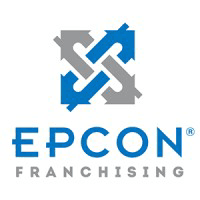Not sure if NextHome is right for you?
Talk to a Franchise Advisor who can match you with your perfect franchise based on your goals, experience, and investment range.
Talk to an Expert
Nexthome
How much does Nexthome cost?
Initial Investment Range
$16,750 to $221,595
Franchise Fee
$5,000 to $10,000
NextHome, Inc. offers franchises for the operation of real estate brokerage offices under the NextHome® name and mark, which specialize in the sale and leasing of residential and commercial properties as well as other real estate-related activities.
Enjoy our partial free risk analysis below
Unlock the full risk analysis to access 9 more categories covering 100+ risks.
Nexthome January 14, 2025 FDD Risk Analysis
Free FDD Library AI Analysis Date: July 16, 2025
DISCLAIMER: Not Legal Advice - For Informational Purposes Only. Consult With Qualified Franchise Professionals.
Franchisor Stability Risks
Start HereDisclosure of Franchisor's Financial Instability
High Risk
Explanation
NextHome, Inc. (NextHome) explicitly discloses that its financial condition “calls into question” its ability to provide support. This is a significant warning, reinforced by several states requiring that your initial fees be deferred due to this financial weakness. While the company reported a small net income in 2024, it was due to a tax benefit and it sustained an operating loss. This creates a tangible risk that NextHome may struggle to support its franchisees adequately.
Potential Mitigations
- A franchise accountant must perform a detailed review of the audited financial statements in Exhibit C, paying close attention to the operating losses and footnotes.
- Your attorney should explain the implications of the state-mandated fee deferrals and the explicit risk factor disclosure.
- Engaging a business advisor to question the franchisor about its plans to improve operational profitability is crucial for assessing long-term stability.
High Franchisee Turnover
High Risk
Explanation
The franchisee turnover data in Item 20 shows a notable number of outlets leaving the system annually. Over the past three years, a total of 149 franchisees have ceased operations, been terminated, or not renewed their agreements. In fiscal year 2023, 63 outlets exited the system, representing a churn rate of nearly 11%. This level of turnover could suggest potential issues with franchisee profitability, satisfaction, or the viability of the business model.
Potential Mitigations
- It is critical to contact a significant number of former franchisees listed in Item 20 to understand their reasons for leaving the system.
- Your accountant should analyze the turnover tables to calculate the effective churn rate and discuss its potential implications for your investment.
- A business advisor can help you frame questions for the franchisor regarding the high number of non-renewals and ceased operations.
Rapid System Growth
Medium Risk
Explanation
The system experienced rapid growth in 2022 but has slowed since. However, Item 20 projects 55 new franchise openings in the next fiscal year, a nearly 10% increase in system size. When combined with the franchisor's disclosed financial weakness and recent operating losses, this planned expansion could strain their resources. A risk exists that the quality of support for both new and existing franchisees may be diluted if growth outpaces the franchisor's capabilities.
Potential Mitigations
- A business advisor can help you formulate questions for the franchisor regarding their specific plans to scale support infrastructure to match projected growth.
- Discussing the current quality and responsiveness of franchisor support with a range of existing franchisees is highly recommended.
- Your accountant should review the financial statements to assess if the company has the necessary capital to support this renewed expansion.
New/Unproven Franchise System
Low Risk
Explanation
This risk was not identified in the FDD package. NextHome began franchising in 2014 and acquired a predecessor with history dating to 1980, indicating it is an established system. An unproven system presents higher risks because its business model, support infrastructure, and brand recognition are not yet validated in the marketplace, which can lead to a higher potential for failure. You should always evaluate a franchisor's track record and experience before investing.
Potential Mitigations
- When evaluating any franchise, your business advisor should help you assess the franchisor's history and the maturity of its systems.
- It is wise to have your accountant review the financial track record to see if the business has a history of stability and growth.
- Consulting with an attorney is recommended to understand the risks associated with investing in a newer, less established franchise system.
Possible Fad Business
Low Risk
Explanation
This risk was not identified. The FDD describes the business as the operation of real estate brokerage offices. This is a well-established, long-term industry, not a business based on a potentially short-lived trend or fad. Investing in a fad business is risky because consumer demand may disappear, leaving you with a worthless business and ongoing contractual obligations to the franchisor.
Potential Mitigations
- Your business advisor can help you conduct market research to assess the long-term consumer demand for any franchise concept's products or services.
- Engaging a financial advisor to analyze the business model's resilience to changing trends and economic cycles is a prudent step.
- An attorney should review the franchise agreement to understand your obligations if the business becomes unviable due to shifting market tastes.
Inexperienced Management
Low Risk
Explanation
This risk was not identified in the FDD. Item 2 shows that the key executives have extensive, long-term experience in the real estate industry and have been with the company for many years. Inexperienced management can be a significant risk, as it may lead to poor strategic decisions, inadequate franchisee support, and an inability to navigate industry challenges, potentially jeopardizing your investment.
Potential Mitigations
- When assessing any franchise, it's wise to have a business advisor help you vet the backgrounds of the entire management team.
- Reviewing Item 2 of the FDD with your attorney can help you understand the depth of the leadership's experience in both the industry and in franchising.
- Contacting existing franchisees to inquire about their confidence in the franchisor's management team is a valuable due diligence step.
Private Equity Ownership
Low Risk
Explanation
This risk was not identified, as the FDD does not indicate that NextHome is owned by a private equity firm. When a franchisor is owned by a PE firm, there can be a risk that decisions are focused on short-term investor returns rather than the long-term health of the franchise system. This might manifest as reduced support, increased fees, or pressure to use affiliated vendors.
Potential Mitigations
- If a franchisor is owned by a private equity firm, your business advisor should research the firm's history with other franchise brands.
- An attorney can help you understand the implications of a PE-owned franchisor, particularly regarding the potential for the system to be sold.
- Speaking with franchisees who have been in the system before and after a PE acquisition can provide valuable insight.
Non-Disclosure of Parent Company
Low Risk
Explanation
This risk was not identified, as Item 1 of the FDD explicitly states that NextHome does not have a parent company. In some franchise systems, a thinly capitalized franchisor may be a subsidiary of a larger, undisclosed parent. Failure to disclose the parent and its financials can conceal financial instability or other risks, preventing you from seeing the complete picture of who controls the system.
Potential Mitigations
- Your attorney can review the corporate structure disclosed in Item 1 to confirm there are no undisclosed parent entities.
- If a parent company does exist, an accountant should review its financial statements, especially if it guarantees the franchisor's obligations.
- A business advisor can help you understand the operational relationship between a franchisor and its parent company.
Predecessor History Issues
Low Risk
Explanation
This risk was not identified. The FDD openly discloses its predecessor, Realty World - Northern California, Inc., and provides details of related historical litigation in Item 3. Hiding or obscuring a predecessor's negative history, such as bankruptcies or high failure rates, is a significant red flag as it could mean you are investing in a system with a troubled past that has simply been rebranded.
Potential Mitigations
- When a predecessor is disclosed, your attorney should carefully review all related information in Items 1, 3, and 4.
- With the help of a business advisor, you can conduct independent research on a predecessor's reputation and history.
- Asking long-term franchisees about their experience under a previous owner can provide valuable, unfiltered information.
Pattern of Litigation
High Risk
Explanation
NextHome discloses it is a defendant in significant, industry-wide class-action lawsuits regarding broker commission rules. The company has entered into a settlement agreement in one case, agreeing to pay $600,000 and implement practice changes. This type of litigation introduces uncertainty into the real estate brokerage business model and could lead to substantial future changes in how you are able to operate and earn revenue, creating a significant risk for your business.
Potential Mitigations
- Your attorney must review the litigation disclosures in Item 3 and explain the potential impact of these lawsuits on the franchise's business model.
- Discuss the franchisor's strategies for navigating these industry-wide legal challenges with your business advisor.
- An accountant can help you model different commission scenarios to understand the potential financial impact on your profitability.
Disclosure & Representation Risks
Example Risk: Franchisee Financial Obligations
Blue Risk
Explanation
This risk involves the financial obligations that a franchisee must meet, including initial fees, ongoing royalties, and other required payments. Understanding these obligations is crucial for long-term success.
Potential Mitigations
- Carefully review the Franchise Disclosure Document (FDD) and consult with a franchise attorney to fully understand all financial commitments before signing.
- Conduct regular risk assessments
- Implement monitoring and reporting systems
Unlock Full Risk Analysis
Purchase the complete risk review to see all 102 risks across all 10 categories.
Financial & Fee Risks
Example Risk: Franchisee Financial Obligations
Blue Risk
Explanation
This risk involves the financial obligations that a franchisee must meet, including initial fees, ongoing royalties, and other required payments. Understanding these obligations is crucial for long-term success.
Potential Mitigations
- Carefully review the Franchise Disclosure Document (FDD) and consult with a franchise attorney to fully understand all financial commitments before signing.
- Conduct regular risk assessments
- Implement monitoring and reporting systems
Unlock Full Risk Analysis
Purchase the complete risk review to see all 102 risks across all 10 categories.
Legal & Contract Risks
Example Risk: Franchisee Financial Obligations
Blue Risk
Explanation
This risk involves the financial obligations that a franchisee must meet, including initial fees, ongoing royalties, and other required payments. Understanding these obligations is crucial for long-term success.
Potential Mitigations
- Carefully review the Franchise Disclosure Document (FDD) and consult with a franchise attorney to fully understand all financial commitments before signing.
- Conduct regular risk assessments
- Implement monitoring and reporting systems
Unlock Full Risk Analysis
Purchase the complete risk review to see all 102 risks across all 10 categories.
Territory & Competition Risks
Example Risk: Franchisee Financial Obligations
Blue Risk
Explanation
This risk involves the financial obligations that a franchisee must meet, including initial fees, ongoing royalties, and other required payments. Understanding these obligations is crucial for long-term success.
Potential Mitigations
- Carefully review the Franchise Disclosure Document (FDD) and consult with a franchise attorney to fully understand all financial commitments before signing.
- Conduct regular risk assessments
- Implement monitoring and reporting systems
Unlock Full Risk Analysis
Purchase the complete risk review to see all 102 risks across all 10 categories.
Regulatory & Compliance Risks
Example Risk: Franchisee Financial Obligations
Blue Risk
Explanation
This risk involves the financial obligations that a franchisee must meet, including initial fees, ongoing royalties, and other required payments. Understanding these obligations is crucial for long-term success.
Potential Mitigations
- Carefully review the Franchise Disclosure Document (FDD) and consult with a franchise attorney to fully understand all financial commitments before signing.
- Conduct regular risk assessments
- Implement monitoring and reporting systems
Unlock Full Risk Analysis
Purchase the complete risk review to see all 102 risks across all 10 categories.
Franchisor Support Risks
Example Risk: Franchisee Financial Obligations
Blue Risk
Explanation
This risk involves the financial obligations that a franchisee must meet, including initial fees, ongoing royalties, and other required payments. Understanding these obligations is crucial for long-term success.
Potential Mitigations
- Carefully review the Franchise Disclosure Document (FDD) and consult with a franchise attorney to fully understand all financial commitments before signing.
- Conduct regular risk assessments
- Implement monitoring and reporting systems
Unlock Full Risk Analysis
Purchase the complete risk review to see all 102 risks across all 10 categories.
Operational Control Risks
Example Risk: Franchisee Financial Obligations
Blue Risk
Explanation
This risk involves the financial obligations that a franchisee must meet, including initial fees, ongoing royalties, and other required payments. Understanding these obligations is crucial for long-term success.
Potential Mitigations
- Carefully review the Franchise Disclosure Document (FDD) and consult with a franchise attorney to fully understand all financial commitments before signing.
- Conduct regular risk assessments
- Implement monitoring and reporting systems
Unlock Full Risk Analysis
Purchase the complete risk review to see all 102 risks across all 10 categories.
Term & Exit Risks
Example Risk: Franchisee Financial Obligations
Blue Risk
Explanation
This risk involves the financial obligations that a franchisee must meet, including initial fees, ongoing royalties, and other required payments. Understanding these obligations is crucial for long-term success.
Potential Mitigations
- Carefully review the Franchise Disclosure Document (FDD) and consult with a franchise attorney to fully understand all financial commitments before signing.
- Conduct regular risk assessments
- Implement monitoring and reporting systems
Unlock Full Risk Analysis
Purchase the complete risk review to see all 102 risks across all 10 categories.
Miscellaneous Risks
Example Risk: Franchisee Financial Obligations
Blue Risk
Explanation
This risk involves the financial obligations that a franchisee must meet, including initial fees, ongoing royalties, and other required payments. Understanding these obligations is crucial for long-term success.
Potential Mitigations
- Carefully review the Franchise Disclosure Document (FDD) and consult with a franchise attorney to fully understand all financial commitments before signing.
- Conduct regular risk assessments
- Implement monitoring and reporting systems
Unlock Full Risk Analysis
Purchase the complete risk review to see all 102 risks across all 10 categories.











